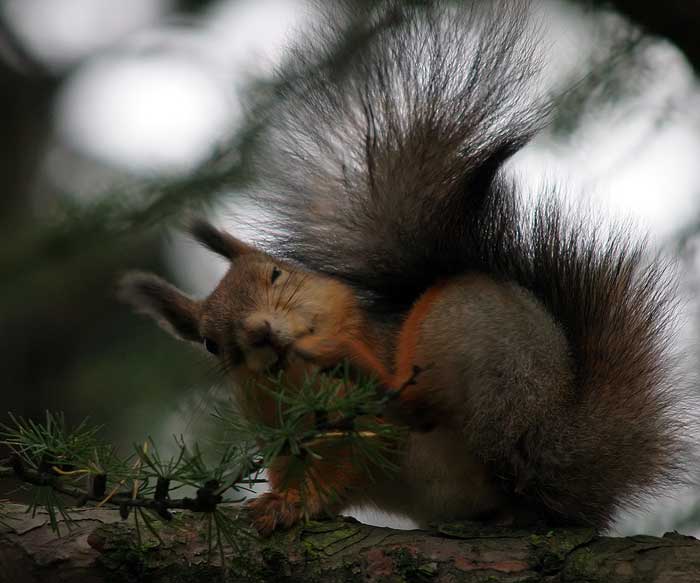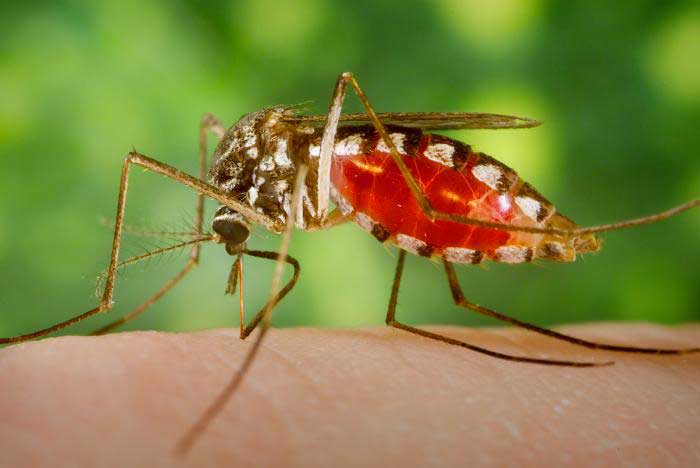
If you’ve ever experienced one, there’s a good chance that you’ve asked yourself why a mosquito bite itches so much.
Most of the time, the swelling and redness that are associated with a bite from a mosquito are minor annoyances when compared to the irresistible itching sensation that is another very common reaction.
But what causes the itch and why does it affect some people and not others? This in-depth exploration of the science behind an itchy mosquito bite should help to clear these questions right up for you.
What Makes the Mosquito Bite Itch?
There are a whole series of events that lead up to that itch, and it starts with a female mosquito’s need for blood. When she sticks her long snout into your flesh, it pokes around in there, effectively acting as a probe, until she is able to find a blood vessel and stick her mouthparts into it.
The mosquito’s saliva is introduced to the area around her injection site and the human body will immediately begin to react to the ingredients that the saliva contains.
There is a protein found in mosquito saliva that acts as a natural anticoagulant, helping to keep the supply of blood flowing for longer, but that’s not all this protein carries. There are also polypeptides present in it that stimulate the body’s immune system as well.
One of the first things that your body will do when it perceives this threat is to call out the troops, in a manner of speaking. The first wave of defenders is a type of antibody that is known as immunoglobulin E, or IgE, and these antibodies will immediately begin to send signals to the rest of you immune system that backup is needed.
The chemical that they use to get the attention of the immune system is called histamine and in a way, it’s this helpful neurotransmitter that actually causes your mosquito bite to itch.
Histamine acts as an irritant to the cells in the area where the mosquito was feeding, causing them to swell, which is what creates the painful bump on the surface of the skin.
This inflammation is generally an efficient and effective method for getting a quick response from the immune system, but it also irritates the nerves in the skin, which is what will ultimately cause the mosquito bite to start to itch.
Why Do Mosquito Bites Itch More at Night?
Many people have observed that their mosquito bite doesn’t itch as much when they wake up in the morning, but that by the time they are getting ready to go to bed, the itching is nearly unbearable.
Studies have shown that our body begins to produce a natural stress-relieving hormone called cortisol in the very early morning hours in order to prepare us for the process of waking up.
Cortisol can also offer temporary relief of inflammation throughout the body, so the high morning levels of it can stop the itching from a mosquito bite for the first few hours of your day.
By the late afternoon or early evening however, the itching will normally have returned as cortisol levels drop to their lowest point in the day.
Why Do Some People Itch While Others Don’t?
Just like some folks are bitten much more than others are there some people who suffer a great deal from the bite of a mosquito and yet there are others who seem to be nearly impervious to the effects of a bite.
A major determinant in how most adults react to a mosquito bite is based on their early experiences with them.
That’s because the first time that a person receives a mosquito bite, there generally won’t be a reaction due to the fact that the body doesn’t recognize the saliva of the mosquito as a threat yet.
After that first sting however, the immune system becomes more sensitive to the presence of it in the body and faster to initiate its histamine response in defense. For most people, each subsequent bite makes the body more efficient at dealing with mosquito saliva, so histamine become less and less necessary over time.
That means less swelling in the area, which results in less irritation to the local nerves and, in the end, less itching. In fact, there are many adults who show little or no reaction to a mosquito bite if they were exposed to a lot of bites when they were younger.
For this reason, if a person is not exposed to many mosquito bites as a child, or if a long time passes between being bitten, there’s a good chance that their reaction when they do receive a bite will be a bit more intense than it would be in a person who had been bitten more often and thus, it will probably cause more itching.
There are also some people who develop a hyper-histamine response to a mosquito bite, which can result in a concentration of the chemical in the affected area and create painful swelling and itching for the victim and even leave bruises in some cases. These more dramatic symptoms are actually indicative of an allergy to mosquito bites.
My own experiences
As any other I hate mosquitoes. I do not suffer from itchy swollen welts though. I do experience itch, however it’s gone within 20 minutes or so. Just like the tiny swelling that forms.
On the other hand, I do get bitten a lot. I’m a so called mosquito magnet. They seem to like me more than my former girlfriends too. Which is cool. I don’t have to carry those welts with me for days. So let me be her decoy. As an almost mosquito welt resistant individual I’m fine with that.
The only thing that really annoys me is their buzzing in my ears. And the fact that I sometimes wake up from the itch on my hands. It’s always my hands they need to pick at night.

Why The Itch Can Be A Good Thing
With the risk on catching the West Nile virus now being a reality in the US the itch also has a purpose. It lets you know you have been bitten by a mosquito. In other countries, malaria, dengue fever, and other diseases can be transmitted by the pesky bugs.
If your body didn’t react at all you wouldn’t know about the bite and possible sickness. The itch, as well as the bump, are indications of a possible cause of the flu you may be experiencing afterwards.
Why Scratching Really Does Make the Itching Worse
If you were ever bitten by a mosquito as a child, you were probably told by your mother that scratching the itch would only make it worse, and as it turns out, of course your mother was right.
Remember how histamine caused inflammation near the bite site and that’s why the nerves became irritated and itchy?
Well, histamine isn’t the only thing out there that’s capable of irritating nerves. Scratching the skin can definitely have the same effect, thereby creating a vicious cycle of itching and scratching and itching even more. Some people put peppers or capsaicin creams on their bites to reduce the itch. This also worsens the itching at first but it seems to help for some.
No one enjoys being bitten by a mosquito or the terrible itching sensation that so often follows it. But hopefully now that you’re armed with this knowledge of why a mosquito bite itches, the next time that you’re bitten, you’ll be better able to resist the urge to scratch.
The most effective products to avoid getting bitten after all are those containing DEET.
Improving your yard can help a lot in preventing the vicious airborne bugs from finding you in the first place.
Are your mosquito welts really itchy? Which mosquito bite remedies work for you? Share your experiences below.
Image by Tomi Tapio.